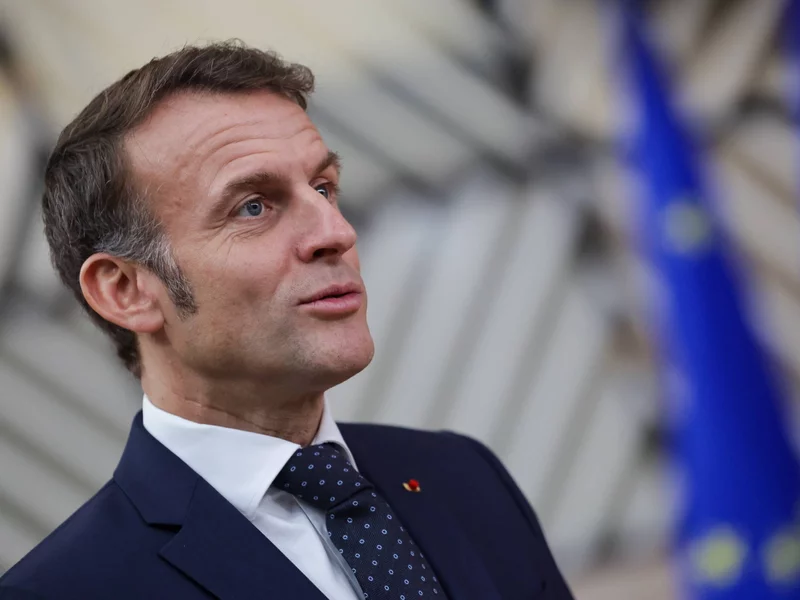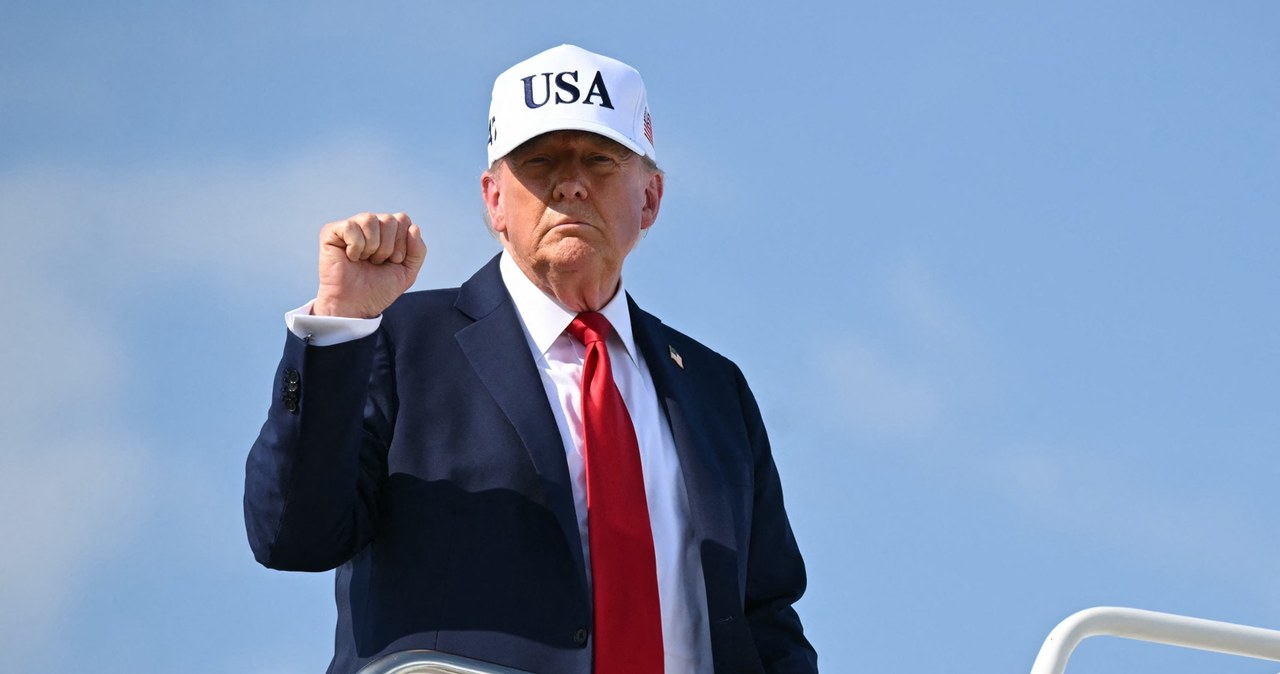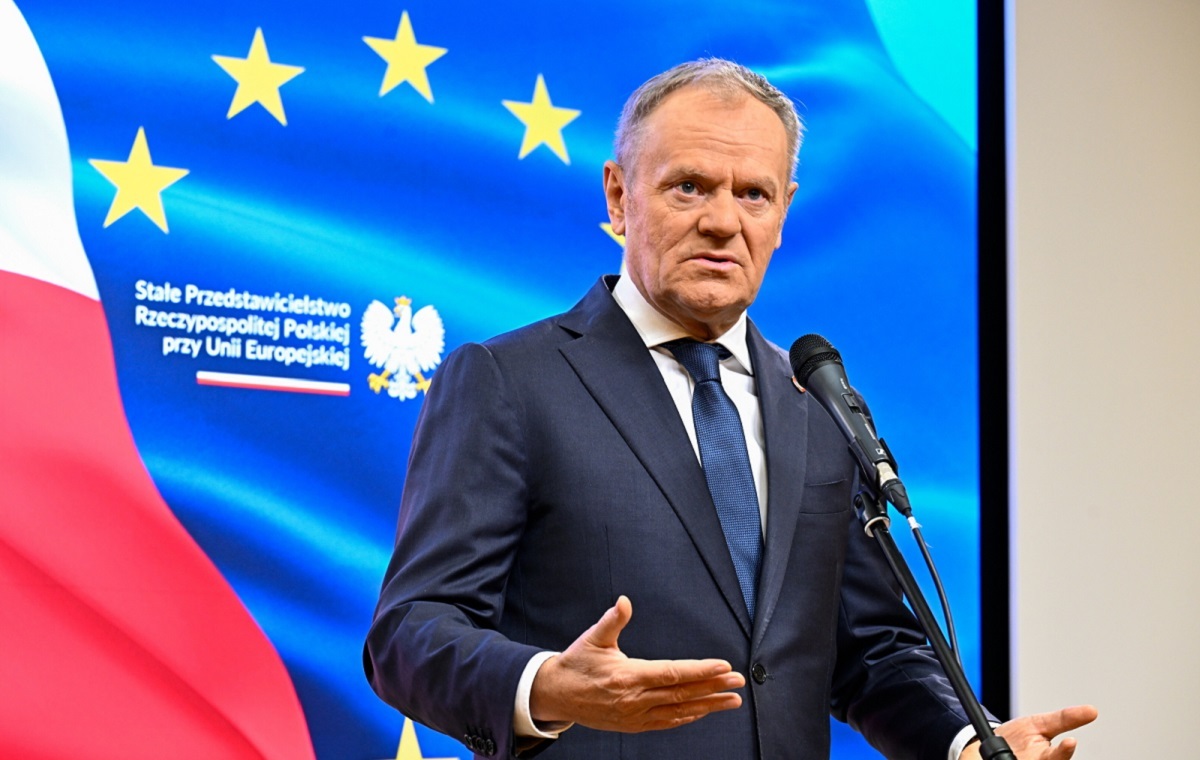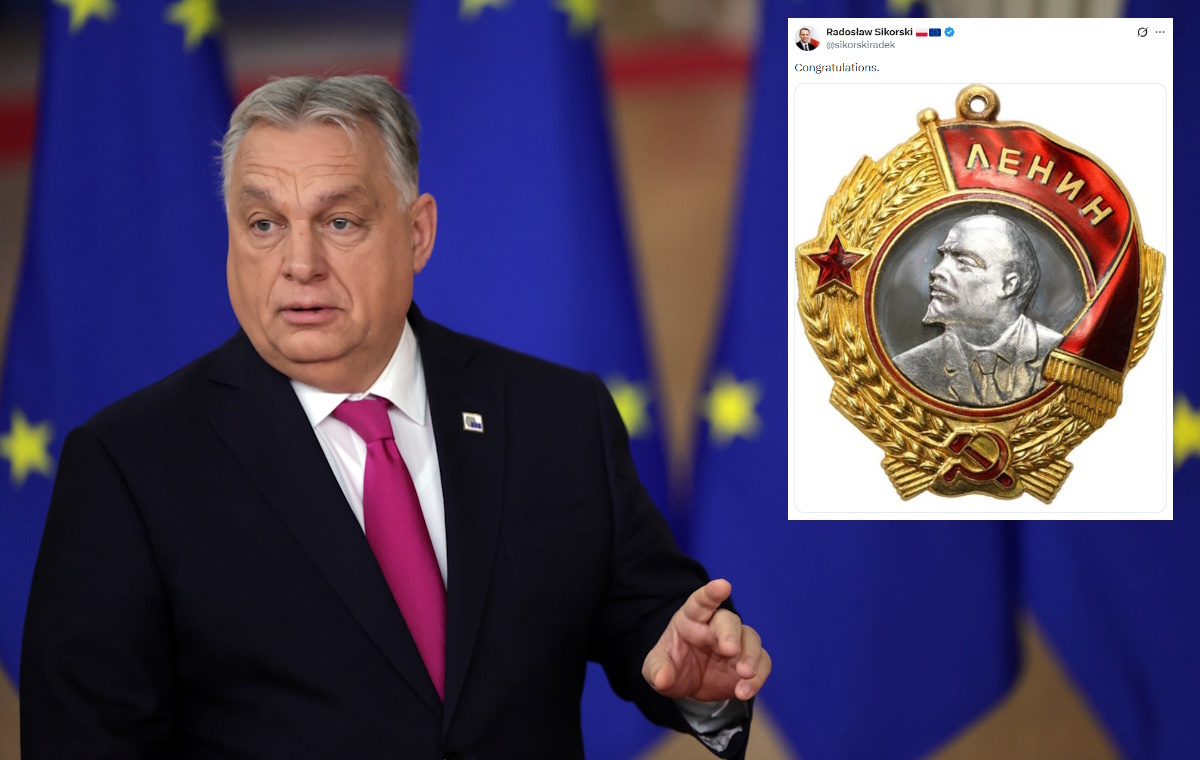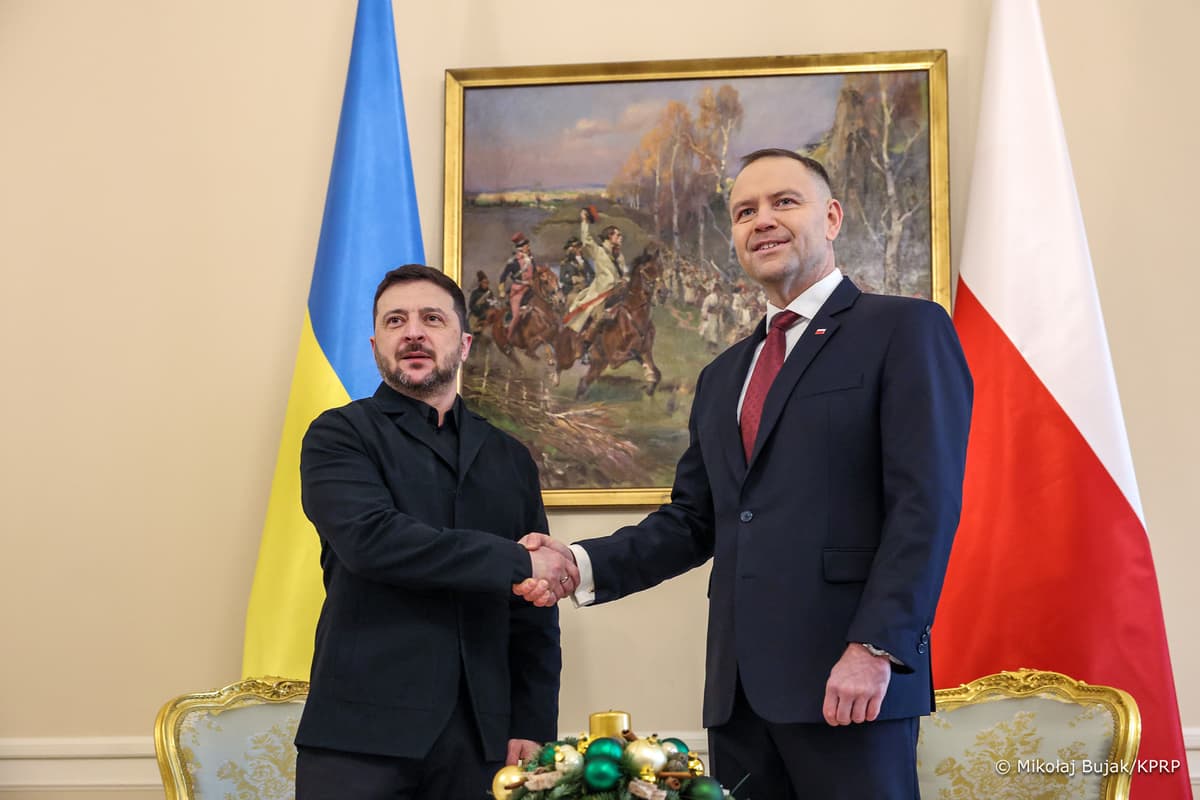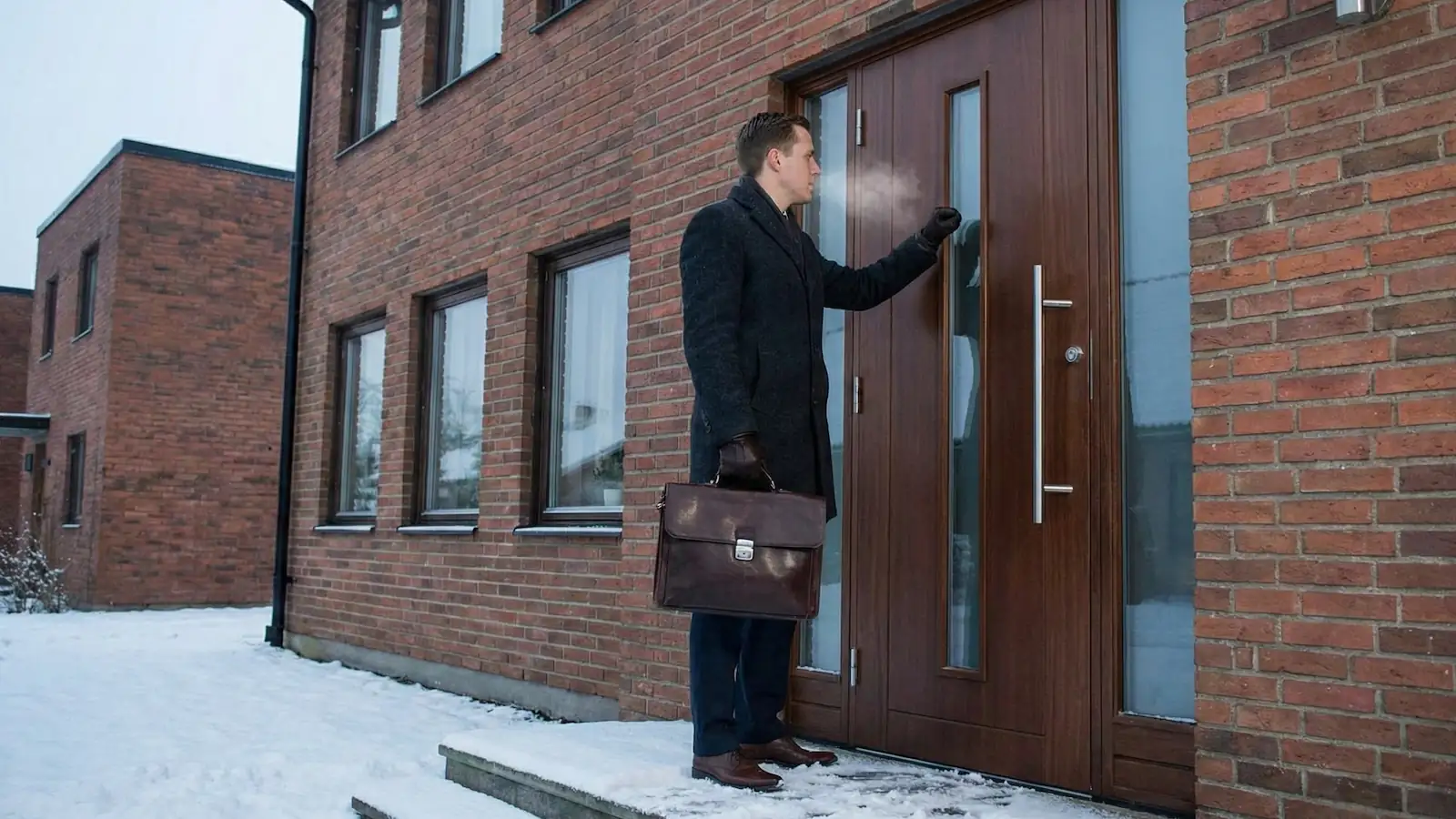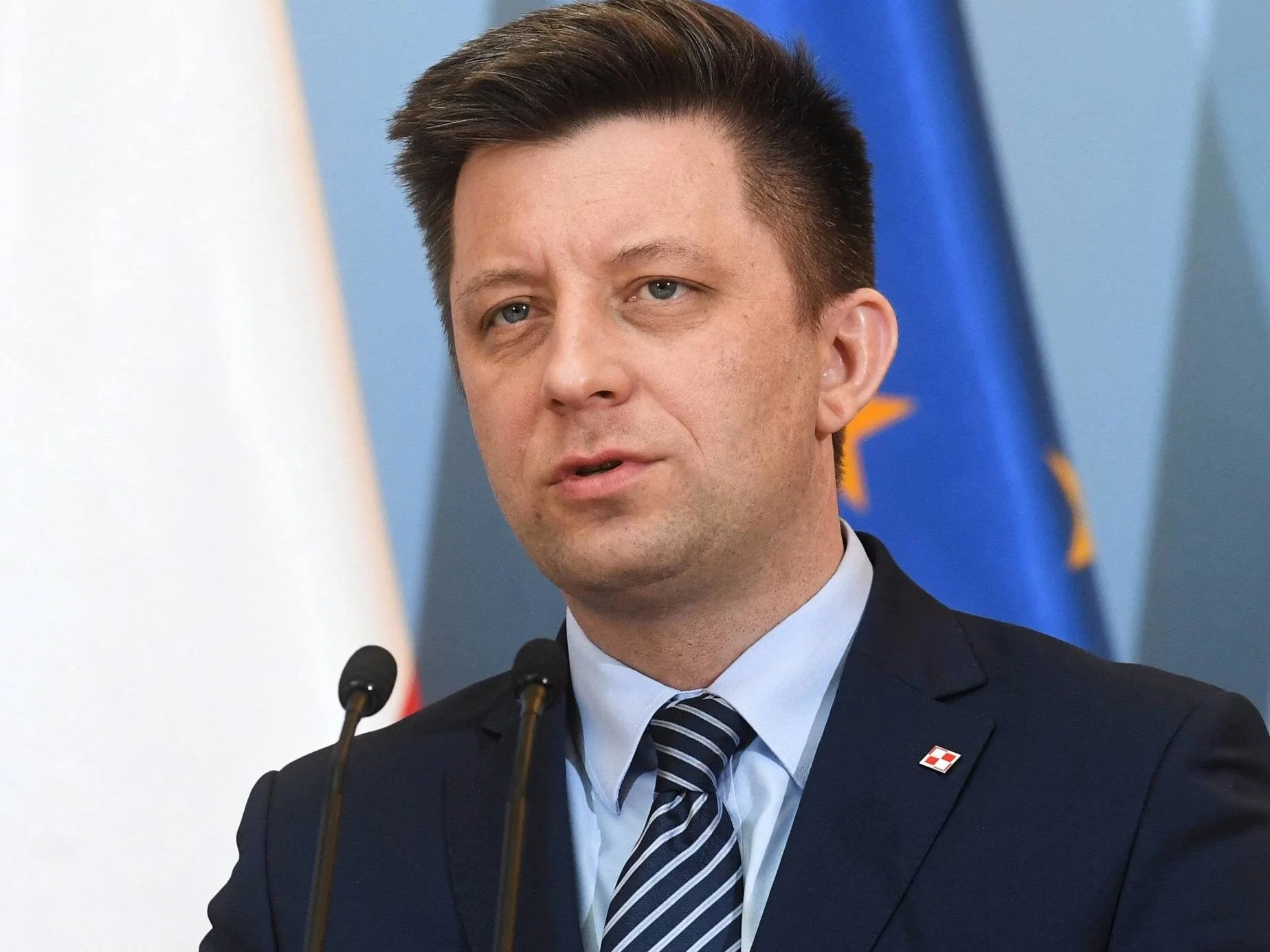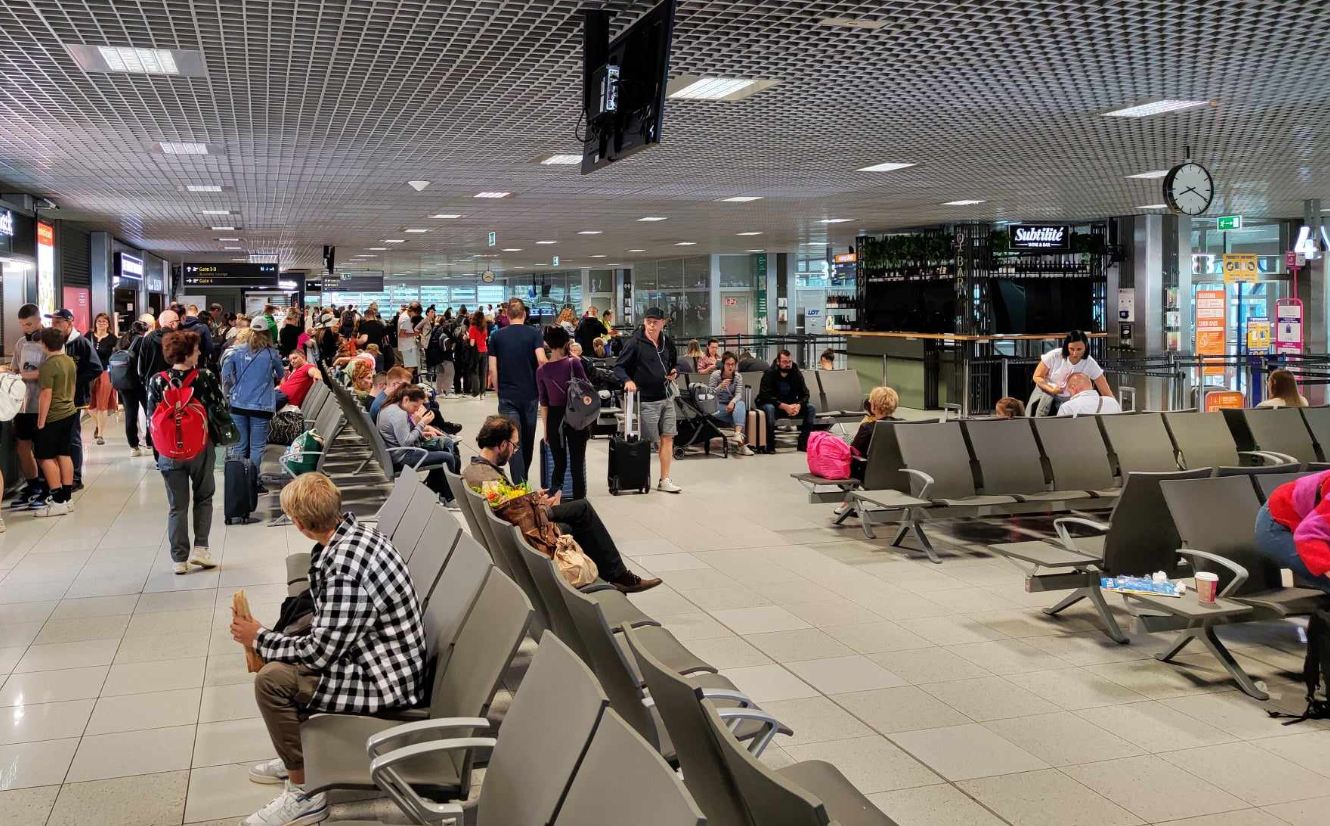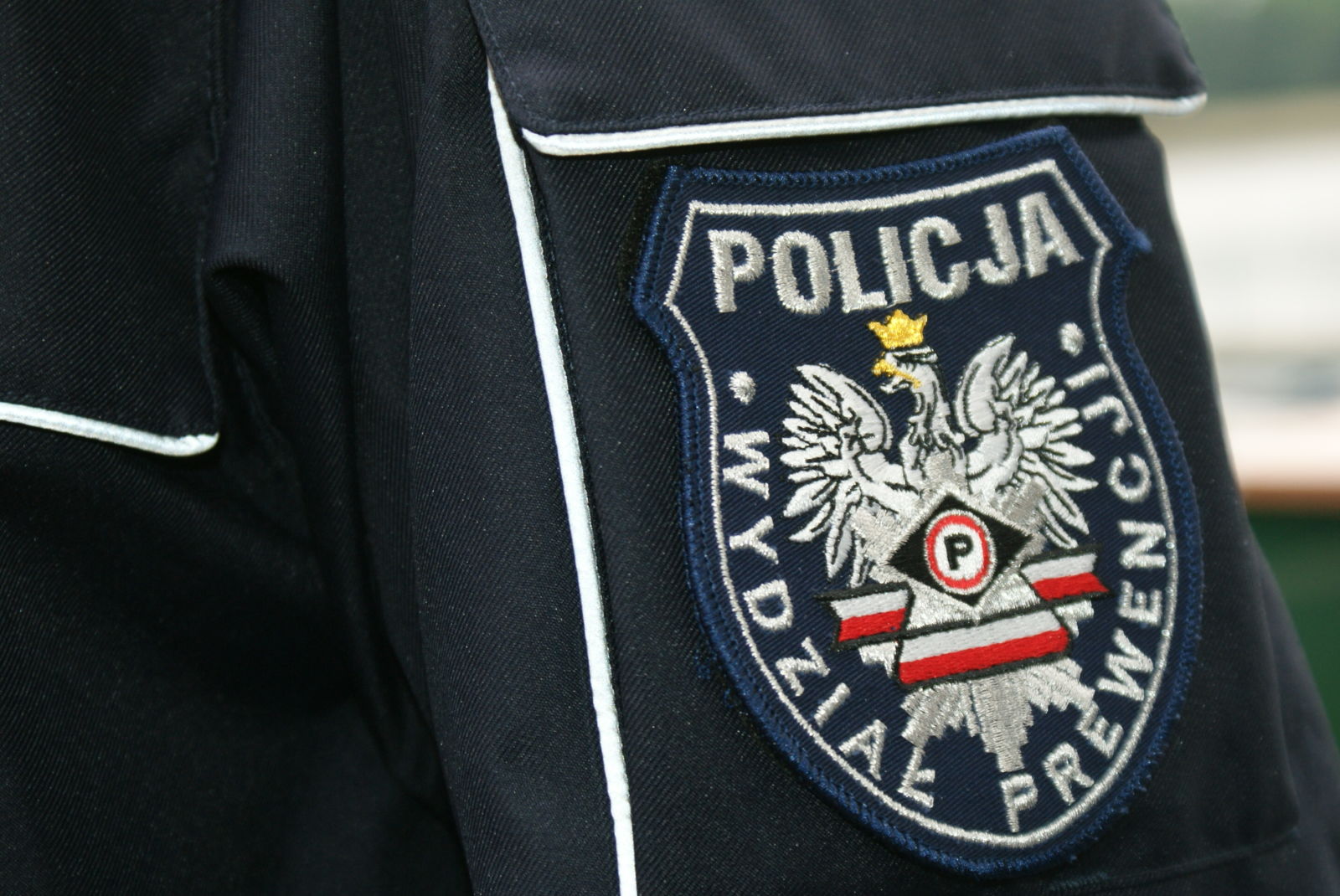Konrad Smuniewski spoke to the National Democratic League activist, erstwhile associate of the Christian-National Union – Henry Klata.
In the years of the Polish People's Republic, you were 1 of the leading activists of the National Democratic League, 1 of the first opposition to the authority of the organization in the Polish People's Republic after 1956. How do you view this organization over the years?
LN-D should be seen in the right historical context. October 1956 is the time erstwhile a breakthrough occurs in the womb of the PZPR. Władysław Gomulka,
in 1948 removed from power due to ‘nationalist deviation’,
in 1951-54 imprisoned; returns to power on the wave of boiling and social protests, launched "by the Poznań June". Gomułku pushes the Stalinist camera distant from power and becomes I secretary of the KC PZPR, adopted enthusiastically by the thirsty nation. This happens erstwhile russian tanks are already on their way to Warsaw. Gomułce manages to convince the russian authorities to powerfully limited reforms, which, however, do not foresee besides deep cleans in the apparatus of power.
The thaw after the Stalin winter becomes a fact and lasts about a year. many organizations, unions, clubs and another uncontrollable structures are being created throughout Poland. The first thawing period ends with the beginning of 1957, erstwhile the authorities order all recently established organizations to apply for registration and to cease their activities until they are considered. These actions aimed to contain the situation, due to the fact that at the same time the "revolution" in Hungary ended in a bloody russian intervention. The fight of the Hungarian people is powerfully supported by Poles, including transports of spontaneously donated blood.
In August 1957, there was a gathering of Leon Mirecki, Piotr Bogdanowicz, Wiesław Chrzanowski and Przemysław Górny and Stefan Kossecki with Fr Leon Szeląg on Rusinowa Polana. In the fall of 1957, advanced and Kossecki began to make an organization that they later called the National Democratic League. In 1960, she was tracked by the authorities, followed by arrests in May. The investigation included 30 people, of whom 13 were charged with prosecutorial charges, 8 were on trial, and 6 were given prison sentences. Mirecki and Bogdanowicz were acquitted.
It is fair to say that the repression that affected us was much milder than in the Stalinist era, e.g. the highest prison sentences in the trial of LN-D activists are 2 years.
We were aware that the introduced strategy would last a long time – more than 1 or 2 generations. Therefore, our goal was not to make and grow structures, but, above all, to organize environments and to place emphasis on education to make this strategy (which is called communist) a barrier in the form of a conscious society. Of course, the most crucial individual who led to the failure of communist power to pacify Poles was Cardinal Stefan Wyszyński. The foundation in the Church was then very strong, completely incomparable with what we see now.
After the trial and after we got out of prison, LN-D as an organization, ceased to exist. Each of us has gone his own way, but not stop. We kept in touch, exchanging information. I took joint action with Janusz Krzyżewski.
By 1976, erstwhile there was a crucial change in the interior policy of the Polish People's Republic, only 1 another secret organization "Move" (brothers Czumowie, Stefan Niesiełowski and others) was created, liquidated by arrests in 1970 and the trial
with advanced convictions.
In 1970, Gomułka's “simmon” was replaced by “technocrat” Gierek, but they were inactive communists from the Soviets' broadcast. In 1976, however, it was allowed to organise and make structures more freely, although this was inactive illegal.
From the position of the LN-D objectives, how did your environment measure "Solidarity" and the changes that occurred after 1980?
Before we deal with the period of “Solidarity”, it is essential to devote a fewer sentences to the times before it was created.
As I mentioned earlier: since 1976, more environments and organizations have started to emerge. After 1976, there was no longer specified difficulty in communicating, going abroad (of course the sharpening was inactive there, but it became much easier). He started coming to us a message from the West – this issue requires a much broader discussion, but I will remind you that it was about, among another things, trying to install the strategy in the Trotsky version, which is the echo of the earlier activities of Kuronia and Modzelewski.
On June 24, 1976, the authorities announce an increase in food prices. In many cities of Poland there are protests that are peculiarly rough in Radom. They end with violent repression – arrests, individual beatings
and collective (so-called “health paths”), expulsion from work.
In this situation, the Committee for the defence of Workers (KOR) was created, whose initiator was Antoni Macierewicz. Together with Piotr Naimski, they begin to make an organizational structure in July under the slogans of aid affected by severe repression of Radom workers. another activists join the NRA, including ‘commandos’ and Jacek Kuroń, who take the initiative. In September 1977, a fresh structure is created, which adopts the name of the Committee on Social Self-defense "KOR". This organization created the thought of a parallel state, the creation of political parties, trade unions, “flying universities”, press etc. Hence reaching out to names from the turn of the 19th and 20th centuries. In October 1977, the KSS “KOR” establishes an illegal magazine “The Voice”, the editor of which is Macierewicz. The editorial board consists of Kuron, Michnik, Piotr Naimski, Wojciech Onyszkiewicz and others. The programme board besides includes Jan Józef Lipski (socialist and freemuralist, chair of the “Kopernik” lodge). The authors of the texts in the first issue of The Voice were besides "commandos", the NRA besides aims to represent the Christian-social and even Catholic-national trends.
In the spring of 1980, the first downtimes at work in Lublin begin, and in July (after silent increases in meat prices) strikes happen in various parts of the country. These include 210 plants in 20 voivodships, the most crucial centres are Lublin and Świdnik. Authorities suppress them practically without utilizing force, frequently going to concessions and partially fulfilling social workers' demands.
On 14 August, a strike breaks out in Gdańsk Shipyard with Walesa at the head, later in Szczecin – there Marian Jurczyk becomes head of the strike committee. Strikes on the Coast are rapidly expanding to more and more workplaces. This time there is simply a full fresh situation, representatives of another strikers are coming to the yard. On 15 August, the Inter-founded Strike Committee is established in Gdańsk. An analogous situation arises in Szczecin. This time the situation becomes serious and is treated by the authorities in a peculiar way. On 16 August, the Political Office of KC PZPR establishes a peculiar squad coordinating actions aimed at the elimination of strikes under the leadership of Stanisław Kani. The squad is given large powers, including the appointment of applicable ministers.Interestingly, KC PZPR's reading of archival material shows that I secretary – Edward Gierek and the Political Office, are completely unaware of the situation. Their hard position rapidly becomes obsolete, due to the fact that the negotiators in the rank of deputy prime ministers, sent to Gdańsk (Jagielski) and Szczecin (Barcikowski), make completely different decisions.
On 21 August, the KC PZPR Political Bureau gathering discussed and accepted the directions presented by the Kani team. The first item sets out the "no discussion with the Interinstitutional Strike Committee, only with delegates of individual establishments or industries". Meanwhile, there is simply a squad of advisors in Warsaw to be sent to the strikers on the Coast and to influence the course of talks – which is not entirely successful. 2 people lead: Bronisław Geremek and Tadeusz Mazowiecki. They represent 2 different, but in fact they have many common environments. Geremek is simply a historian of judaic origin and a long-standing (until 1968) associate of the PZPR, author of letters to the organization – at the same time associated with the French Masonry of the large East. On the another hand, the “progressive Catholic” Mazowiecka is simply a trusted man of Kiszczak and Jaruzelski.
Since then, there has been a unusual discrepancy between what the KC Political Office decides and what it implements. The Political Office meets all day. On 24 August, the MKS approves an expert committee led by Mazowiecki. Composition of committees: Geremek, Wielowiejski, Cywiński, Kowalik, Waldemar Kuczyński and Jadwiga Staniszkis. Then thistalks with experts from the government committee have moved on. The basic request for free unions is no longer contested.
Here are any examples of the political bureau's discussion:
- August 26th. I secr. tw. E. Gierek: “With the request of free trade unions it is impossible to agree”.
August 28th. E. Gierek: “Strengthen the blockade of the Coast. Tonight, make bigger arrests."
- August 29th. E. Gierek: “As for free trade unions, I am against.”
- August 30th. S. Kania: "Tow. Barcikowski signed an agreement with MKS in Szczecin. It is an act of large self-sustaining from Mr Barcikowski.”
The next day, after signing the agreements, Wałęsa could say in his first speech at the shipyard gate: “We yet have independent, self-government trade unions” – utilizing the word “union” in plural.
The assassination of any organization elites on the Game group was a success.
On August 31, the Political Office did not assemble and the next day besides – and so until September 5. So who ruled between August 30 and September 5? The most visible performers of this palace coup were the companions of Kania, Kiszczak and Jaruzelski, or possibly individual else?
On 6 September at the KC Secretariat of the PZPR, Kania informed: "In a telephone conversation with L. I. Breżniew, I informed about the illness of Mr. E. Gierek, about the unanimous decision of the VI Plenary KC to entrust me with the functions of the I Secretary of the KC. (...) Mr. L. I. Breżniew gave me congratulations and assurance of moral, political and economical support for me, our management and the country."
The plan of the new-old squad was carried out, fresh unions (multiple) were launched, with the imported advisory team, which had already remained at "Solidarity". But after September 6, everything went wrong.
This situation continued until the 1st gathering of “Solidarity” in Gdańsk (September and October 1981), erstwhile the last act of competition took place. Authorities selectedKorovian unions and communities and authorities-related experts were removed from the decisions taken. As a result, we had... martial law.
Who managed to remove these environments from the decisive impact on Solidarity?
Let's leave the credit aside, but our engagement was. As I said before, from the first day that “Solidarity” was formally accepted, we were inside it – as advisors too, but above all as people who worked and were in the betting. We had an influence on what it all looked like and we were active in these disputes. As a result, we have made everyone aware that KSS “KOR” is the institution that cannot take power in a relationship. It could not be said that only 1 environment or group of people had an impact on it – it simply lost to those who organized “Solidarity”. But again, it would be a misunderstanding to say that only 1 environment has decided this. Only the transformations of the 1980s were a disaster for us and for “Solidarity” due to the fact that the full social movement had been broken down. erstwhile this happened, many had to go abroad (the authorities gave them a choice: either you sit or you leave). This was the condition that lasted for Magdalena.
When “Solidarity” was broken, the problem of Wałęsa arose for power: it had authority throughout society, and the biggest problem was pacifying it. Then – unfortunately – it was the hierarchs of the Church who helped the power of that time. The circular Table was in very short a theatre, due to the fact that crucial decisions about the way of systemic transformation were made during talks and libation at the Kiszczak villa in Magdalena. Only how did “Magdalenka” happen, who led to it, and how was Wałęsa broken, that he agreed to participate in the circular Table’s “discourses”? It is known that he was urged to do so by representatives of the Church, specified as Fr Alojzy Orszulik or Archbishop Bronisław Dąbrowski. If he had not given his consent, the circular Table would not have happened, in my opinion, because, as I mentioned, he had large authority in society.
The circular Table and "Magdalenka" was 1 large boiler in which future fates of the homeland were brewed, and which event we simply lost as a nation.
You were a associate of the First Parliament of the 3rd Republic. How do you justice this organization today? Sometimes it is stressed that it was besides moderate. Was it a full national party, or are those who criticize the party's besides strong a turn toward the chadecia?
First, I will tell you how the ZchN was formed and why specified bias was needed. After the "contract" elections in June 1989, there were people who did not fit into the system. This group included Jan Łopuszanski, Marek Jurek and Stefan Niesiolowski – who advocated the Christian national formula. At the time, from the "solidarity" communities of the beneficiaries of the circular Table (Kuroń, Michnik, Geremek, Mazowiecki) there was force for citizens' committees set up at the time of the elections to stay a representation characterised by a deficiency of organized structure, but at the same time acting as any kind of political organization – making decisions, resolutions, selecting candidates for authorities, etc. In this way, a large multi-fractory organization winning any election would be formed on the basis of civilian committees. Of course, it would be controlled by a group from the erstwhile KOR.
In order to torpedo these dangerous plans for the sake of Poland, it was essential to establish a classical political party, based on common principles of ideas and programs. Then Janek Łopuszanski went to Wiesław Chrzanowski and proposed the creation of a organization to lead the latter. He accepted the proposal and we started collecting the environment. But in my opinion, there was a mistake in that it was besides extensive. The fact is that the uprising of the CSF has eliminated the civilian committees and political parties have been formed, and without that it could have been completely different. At the same time, ZChN took besides wide a expression if it included Macerewicz and the environment that formed the NRA.
Various environments and people who were now expected to form 1 organization frequently did not know each another at all, had not previously had contact. I was in charge of organizational matters. erstwhile we were preparing for the election, I would get in the car and drive to Poland for a fewer days. I came to an area completely unknown – people who declared to enter this structure were organized on the site. This was the preparation of a set of 460 people to run. I only met any people at the scene. Many had their own drawings and ambitions.
The consistency of the SCHN was badly influenced by the implementation of the Sejm's mirror resolution of May 28, 1992, according to which the Minister of the Interior, Antoni Macierewicz, was obliged to disclose the names of MPs, senators, ministers, voivodes, judges and prosecutors – and the game that took place around it. Macierewicz did this at the time: he limited himself to MPs and senators, while he left out the rest. Moreover, he did not have the tools to implement this resolution, he only revealed names from the alleged list of Milczanowski. People who were young came with him without any experience in akin matters. The names that Andrzej Milczanowski prepared as the head of the UOP in 1990-92 included the archival position of erstwhile secret associates of the SB. Contrary to the resolution of the Sejm, the list of Macerewicz did not include the names of the voivodes, judges and prosecutors. So his people made a selection and most likely 3 days before the deadline shot towards mainly Wałęsa and Chrzanowski, besides struck Moczulski and KPN, who had over 40 MPs and whose support was sought by the Olszewski number government. Macierewicz played briefcases not to explain anything, but to strike politically at circumstantial people. He made an effort to break the party, but this effort failed him, due to the fact that after all this he was expelled from the ZChN's union club and then removed from the party. A group of his followers besides left with him.
Was the CHP full national? Its intention was to unite various right-wing environments (chadek, independence, conservative-liberal, national) on the basis of Catholic-national ideas. Unfortunately, there were people there who were not along the way, and who, as it turned out, had another goals.
One more event proved to be a burden. In 1993, ZChN went to the parliamentary elections not under its own name, but under the name of the multi-party Catholic Election Committee “Home”. This multiparty consisted mainly of the CHP and a tiny group of Alexander Hall. As a result, 8% of the votes required for the distribution of seats in constituency or 7% to be broken down from national lists – and the threshold for political parties was lower (5%). Going into the coalition with Hall proved to be a mistake, due to the fact that the joint committee only received 6.37% on a national scale. As a result, we did not get to the Sejm, and there were frictions and conflicts inside the CRS. As a result, the erosion of the organization began. Some, specified as Niesiolowski, landed in bad places. It's sad, but it's the truth.
Referring to Macerewicz's subject – listening to the modern right can sometimes give the impression that he appeared out of nowhere, disbanded with an agent and is simply a crystal clear figure, which cannot be accused.
I remember that the KOR was more curious erstwhile Macerewicz began publishing the magazine “The Voice”. The title was associated with "The Voice" from the turn of the 19th and 20th centuries, which was issued by nationalists at the beginning of the movement. But it was a completely different magazine, and there were people there who had nothing to do with the national idea. At the time, I couldn't know. Therefore, I went to Leon Mirecki and asked him if Macerewicz had anything to do with the national movement. He assured me he wasn't. It was meaningful to me. But I've already told you how people made the NRA. Macierewicz was primarily a cortical. In spite of my objection, he's in CHP.
Do you think if it hadn't happened, it would have ended differently?
It's different. erstwhile the government of Jan Olszewski was created, it was impossible to form a government: there was distraction and parties could not communicate. Therefore, individual came up with the thought that it was essential to make Olszewski – who could not gather his own organization – become Prime Minister. Everyone agreed to him, due to the fact that he apologized, he was a completely uninitiated man, so he couldn't think of anything on his own. He then formed a government that was said to be an authorial government. due to the fact that Macierewicz had a very good relation with Olszewski, he was included in this government as well as people from us. Since the government was minority, it had only an occasional majority held in the Sejm for circumstantial votes, so Antoni concluded that by vetting it would make a coup and force any (especially KPN) to enter the government coalition. Olszewski liked it very much. And they made a coup, and he was overthrown.
What is the top success of those years? Do you agree that it was an effective fight against legal abortion? The bill then passed is comparatively good for European conditions.
It was besides a failure. You are talking about passing a comparatively good bill for European standards. We were not talking about a comparatively good bill, we were talking about a law on full protection of life, and that was then possible. Well, unfortunately, people said that in comparison with what was, it is already a lot, you should be happy." It was this reasoning and deficiency of support that caused the bill (not providing for any exceptions) to be stuck. We just lost it. The people of the Church thought that much had been achieved and that 1 could not be specified a malcontent and want everything – it was impossible in mind! And that's what's left, today.
What happened to John Szopuszanski, who presented a more extremist direction? What was his way and how do you think it could have been played differently? Could he have become a political leader?
Janek has a predisposition to be a political leader. He's predisposed to execute publicly. He's predisposed to win his rations in discussions. He besides has quite a few knowledge. I think 1 crucial regulation was the financial resources. Look at Mark Jakubiak. In 10 days, he collected 140,000 signatures. There was individual who did it. He disowns, saying he doesn't know precisely how it happened, that they just brought him these signatures. If there were suitable opportunities, it would be possible to present and publicize a candidate like Łopuszanski decently – but it was not. Politics cannot be done without adequate resources.
Many of the well-known politicians of the CPR ended up in the PiS, any even in the PO (as Niesiolowski). On the another hand, around 2007 any of the politicians of ZChN, specified as Henryk Goryszewski, began to approach the Polish household League. Which decided on the LPR defeat. Did this party, to any extent, repeat the way of the NMS?
No, she didn't repeat the way of ZChN, due to the fact that practically taking the LPR's operation came up nothing. At least I don't have the cognition that any of what this organization did remains. Therefore, the balance sheet is most likely worse than in the case of the CSF. For 1 moment, the LPR was practically built on 1 person, and the effect is what it is. The LPR seems to be inactive formally existing, but I would not mention to the actions of this party.
Back to the old days... It has late been 30 years since the circular Table. It is simply a long adequate period to sum up the achievements of the 3rd Polish Republic, it is simply a period
half as long as the full of the II Republic of Poland is over 2/3 of the dimension of the PRL. What have we succeeded so far – as a state and society – and what should be considered a disaster? The evaluation of the III Polish Republic, formulated in right-wing, national and conservative circles, was almost exclusively a negative assessment. Can crucial positives be seen in the Polish state in fresh decades?
The 3rd Republic is our loss. circular Table, “Magdalenka” – it was the failure of “Solidarity” and it was besides – what shortly came out – the end of Wałęsa. He was a large destroyer. As a designer, he did not fulfil his function at all, he had no knowledge. There was a request for cognition or environment, an environment, and that wasn't there. We lost “Solidarity”, resulting in the circular Table and the agreement which resulted from it, and later another tragic event – entering the European Union. And now, what can we say about positives? What positives? That we inactive exist? Well, that's affirmative due to the fact that we inactive exist. But the ability to act
We are systematically shrinking.
From fresh events, the UK's exit from the EU was unfavorable, as it hampered the creation of a European superstate, so that we inactive had any chance to breathe. I do not know why there was joy in the national environment due to the fact that the British left the EU.
Because there could be a domino effect...
I don't think... [laughs]
We hear the Italian Prime Minister say they'll be next. And even though it is at the head of a government composed of social democrats and populists with an unprecise anti-establishment orientation.
He can say that. These are of course political games, but now all of this is going towards creating a single state structure. Now, formally.
Either he goes that way or he falls apart. It seems that the anti-EU moods are now rising.
Perhaps what you are saying is true, but the actions of EU politicians are now moving towards closer ties. There is no way we can counter this. There is no way we can leave the EU. The Lisbon Treaty does not supply for a withdrawal. Of course, the dissolution of the Union cannot be ruled out, but I don't think this is the time yet.
Let's go back to the transformation thread for a while. The fall of communism brought the dominance of the liberal economy with its inherent model of social atomization, and the advancement of liberalism revealed social fragmentation.
The fall of communism, as we call it, has brought success to liberals, or, as we now say, "freedom". 1 of the “freedoms” or Balcerowicz is peculiarly pleased. Social dissection is the consequence of Balcerovich's plan. any made money by taking over national assets, while others were left with nothing.
This plan was imposed on Poland. It is not that communism destroyed everything – if so, what would then be taken over? There's nothing to worry about. The socialist economy did not work as it should, but it was built, but it someway functioned. Still, there wasn't much dissection at the time. The stratum from the times of the commune was not that 1 had the harmony of money, and the another did not – everyone had little. Those who were in the organization camera didn't get any more money. They were given a business car, erstwhile vacation centres they went to, were consumers and shops “behind yellow curtains”), where they could buy goods not available elsewhere cheaper and more. Of course, there were privateers who were making money. In turn they could not very much boast that they had them – but besides lived better than the average citizen.
Let's pull the thread. Could economical transformation have looked different?
Yeah. The economical transformation could have looked completely different. There was then widespread privatisation, during which our national assets were sold, our plants even at prices below the value of the land on which they stood. It was sold out – and it is not known whether the money from these transactions was later in effect due to the fact that it was not controlled. There was an investor coming from abroad, he was expected to pay any amount, and it was not known at all if this amount had affected. What did that privatization look like? Those who owned washing machines came here and bought washing machines in the area, utilizing a skilled workforce. If his washing machines were coming, this is where he made them. The technology was transferred to himself if it was good, and if the request for its products was not great, then it liquidated the plant and already. But privatisation took place, so “freedom” were successful. Of course, the above divisions are alternatively reflection and are my mention to the alleged economical transformation.
And what, too politics, can we do as a national environment to better influence the environment?
First you should be a national environment and form a staff. Training must not end at integration reunions. I am referring to ideological and political training, on which an in-depth analysis of events from the last half-century, from the past of the Polish People's Republic, but above all from the period of "Solidarity" and its destruction, as well as current events. Only specified work makes sense and brings results. 2 large events came from Poland: Pope Pole – John Paul II and “Solidarity”. They both shook the world. We both lose in front of us.
Thank you for talking to me.
The interview was published in No. 23. "National Policy".

